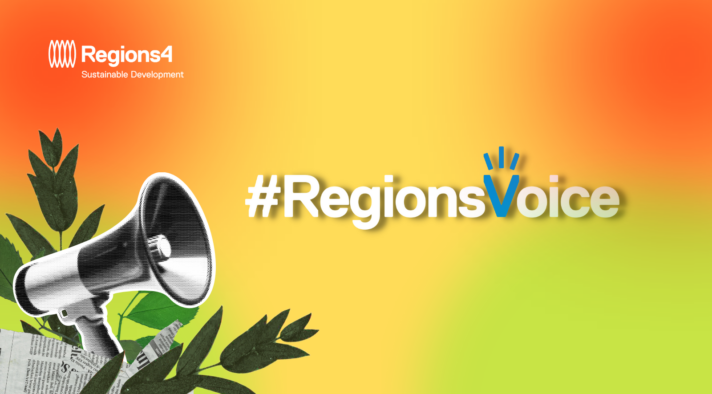On 8 December, in the framework of COP25, Regions4 and the Basque Country organised the side-event Regional Leadership in the Climate Emergency: Nature-based solutions for climate adaptation and the water challenge.
Climate change has been declared as the biggest issue of our time, and as it poses a threat to all humanity, it has created an emergency, which is being recognised by scientists, public leaders and community activists around the world. As of today, more than 1100 jurisdiction in 24 countries have passed a binding motion declaring a climate emergency, thereby covering 290 million citizens. The challenges resulting from climate change and the solutions to it must be addressed not only by the global and national level but must also include the subnational and local perspective.
In this regard, the event aimed to showcase how subnational governments worldwide address the climate emergency challenge. It introduced the opportunities, challenges, and success factors for subnational nature-based adaptation efforts and water-smart climate mitigation and adaptation policies. Divided into two sessions, the event counted with the participation of representatives from the regional governments of Amapá (Brazil), La Réunion (France), Jalisco (Mexico), Lombardy (Italy), Åland Islands (Finland), Azuay, (Ecuador), Council of Governors of Kenya, British Columbia (Canada), Catalonia (Spain), Basque Country (Spain), Santa Elena (Ecuador) and the European Committee of the Regions.

The first session focused on nature-based solutions for climate adaptation and highlighted subnational governments’ actions to boost resilience to the overall vulnerability to climate change. Nature-based solutions have gained higher recognition amongst subnational governments’ policy-makers, as they involve conservation, sustainable management and restoration of ecosystems which are vital to achieve the Sustainable Development Goals, while halting biodiversity loss and effectively addressing climate change. Its synergistic approach provides multiple benefits that go beyond climate change adaptation, addressing also human wellbeing and health, urban regeneration capacity and economic benefits.

For example, the State of Jalisco is undergoing a serious deforestation and soil degradation as a result of a change of land use for extensive farming and urban expansion, which also has impacts on biodiversity conservation. Their REDD+ strategy is directly complemented with nature-based solutions. “Our policy instruments are aligned with each other. We work at the watershed territorial scale to ensure river connectivity, which is often ignored in biodiversity strategies. We also work on promoting biological corridors and wetlands”, highlighted Mr. Graf.
Another example is Lombardy’s system of urban forests with 2 million trees planted in the city to promote air quality and health.“Nature-based solutions need to be implemented in regions that already have natural spaces, the region of Lombardy is one of the heaviest populated in the country and in the world. We have regionally protected areas and nature reserves, included in the Natura-2000 Network, a big amount of land that provides ecosystem services important to our urban areas”, said Minister Cattaneo.

On the other hand, Mr. Waldez Goés, Governor of Amapá, highlighted the importance of subnational governments as key actors for effective adaptation: “The presence and collaboration of subnational governments are absolutely necessary on the international agenda. The Amazonian regions are joining forces towards a collective positioning for a carbon-neutral future as well as the protection of our biodiversity and our communities.”
Mr. Markku Markkula, First Vice-president of the European Committee of the Regions seconded “The role of subnational government organisations is increasingly more important, we are very diverse territories but sharing our experiences helps us know how other regions integrate nature”.
On the other hand, the second sessions addressed the impacts of climate change in the water cycle; such as droughts, floods, melting sea ice cover, sea-level rise and extreme weather events. Until 2050 the freshwater demand will increase extremely, while water security and availability will drastically reduce. In this regard, subnational governments work on integrated solutions for effective water governance to mitigate and adapt to the impacts of climate change on the water cycle.

As Governor Otthichilo from Vihiga County, Kenya stressed “Water is life for us. We regional governments in Kenya are obliged to establish a climate change strategy and a unit within our governments with local communities heavily involved. All decisions are approved with a bottom-up approach, local communities make important decisions concerning the use of their natural resources”.
Another example of working with local and indigenous communities is British Columbia. As Minister of Environment and Climate Change George Heyman said: “We are in the process of implementing a new Water Sustainability Act that will regulate ground and surface water, working with local communities & indigenous peoples to protect & manage water in times of scarcity.”

The Government of Catalonia is also committed to addressing the climate emergency with responsible water management through the Catalan Water Agency, as they have established four commitments: 1) deepen the availability to desalinate water; 2) recovery and improvement of disused catchments; 3) improved purification and 4) increased use of recycled water for industrial uses.
Check out the photo album of the side-event here.



